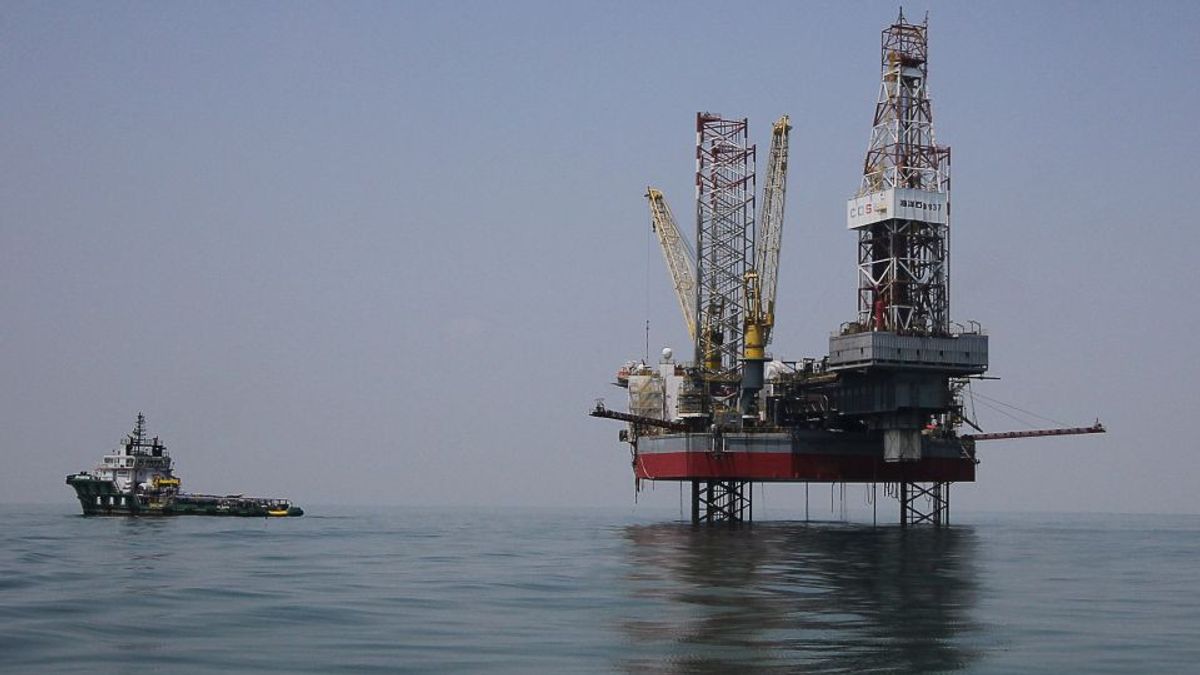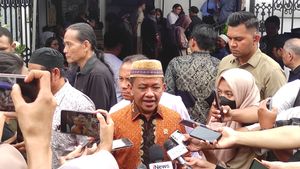JAKARTA - TIS Petroleum Director Tumbur Parlindungan opened his voice regarding the latest profit-sharing scheme issued by the Ministry of Energy and Mineral Resources (ESDM).
Tumbur said the latest gross split scheme had indeed improved the existing scheme because it reduced the existing fiscal regime uncertainty. However, he emphasized that the profit-sharing scheme is not the only reason investors are reluctant to invest in Indonesia.
"The problem is that investors do not return to Indonesia in fact in the agreement. Because of the agreement between investors and the state, many of these agreements, the state does not comply," he said in the Energy Corner quoted Wednesday, October 9.
He considered that the fiscal reference was actually just a gimmick to attract investment in Indonesia with good profit sharing. However, the main problem is Indonesia's compliance with the content of the contracts that have been signed.
He explained, for the last 10 to 15 years there have been many contracts that are not actually respected by the Indonesian government, causing a loss of trust.
"That's a lot of problems actually. With the change (regulations) of the new minister, investors will see changes in the fiscal regime. But the most basic thing is that the security contract that has been signed is still violated or not," he explained.
For information, the Ministry of Energy and Mineral Resources (ESDM) has issued the latest regulations related to contracts for oil and gas products (oil and gas) to increase the attractiveness of oil and gas investment in Indonesia. This latest regulation is contained in the Regulation of the Minister of Energy and Mineral Resources Number 13 of 2024 concerning Contracts for Gross Split Profit Sharing, this regulation replaces the Regulation of the Minister of Energy and Mineral Resources Number 8 of 2017 concerning Contracts for Sharing Gross Split Results.
SEE ALSO:
In addition, the Minister of Energy and Mineral Resources Decree is also determined Number 230.K/MG.01.MEM.M/2024 concerning Guidelines for Implementation and Components of Contract Sharing Gross Split Results.
One of the important points in this rule is the certainty that the profit sharing received by the contractor can reach 75-95 percent.
In the old gross split contract, the contractor yield sharing is very varied, can be very low, up to zero percent under certain conditions.
"The certainty is that 75-95 percent of the profit sharing has a contractor. In the past, it could be very low, we could even correct it up to 0 percent. In addition, the profit sharing is not competitive, the evidence is that 15 of the 26 KKKS apply for incentives or discretion," explained the Director of Upstream Oil and Gas Development Ariana Soemanto, Tuesday, October 1.
The English, Chinese, Japanese, Arabic, and French versions are automatically generated by the AI. So there may still be inaccuracies in translating, please always see Indonesian as our main language. (system supported by DigitalSiber.id)
















